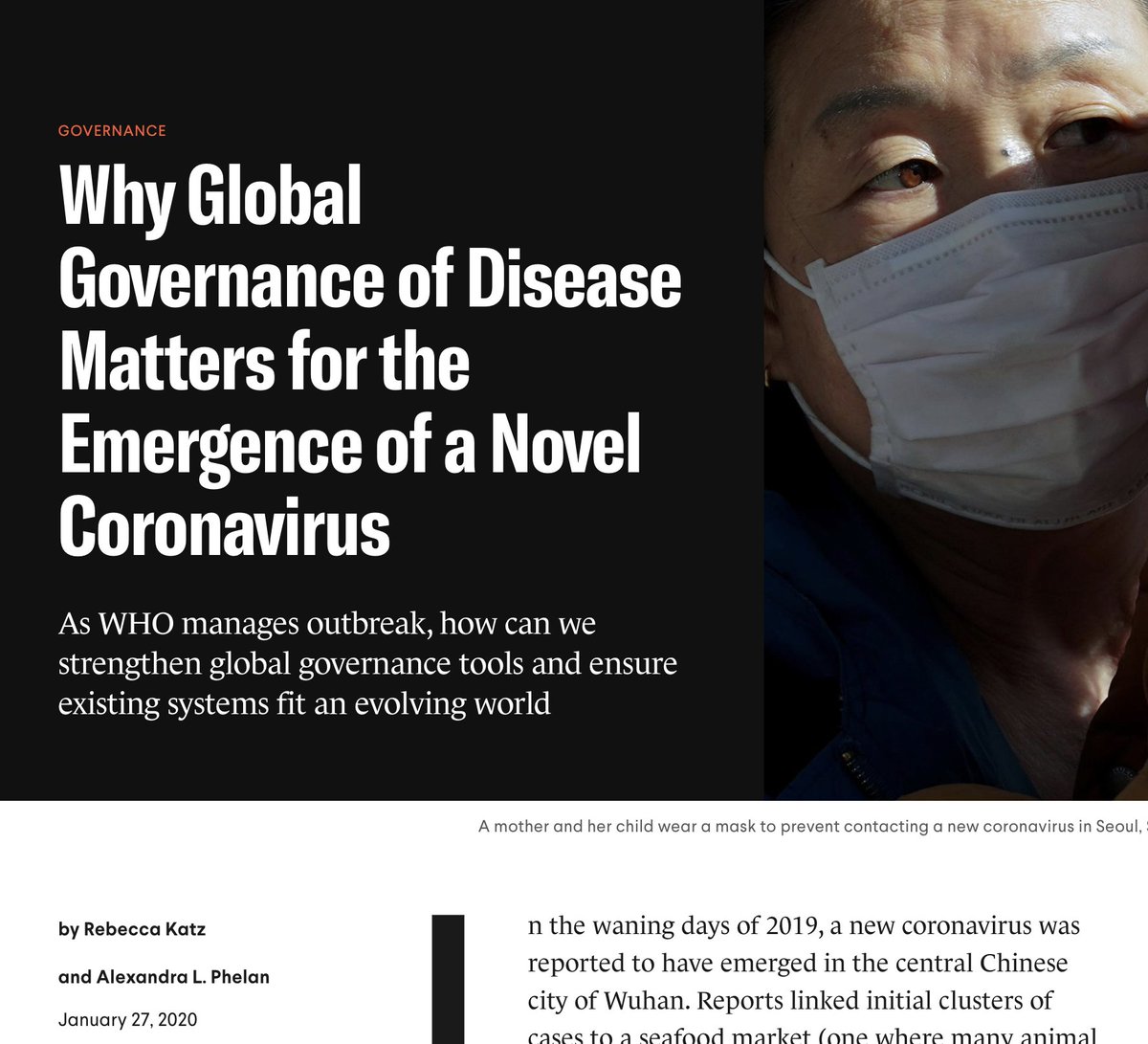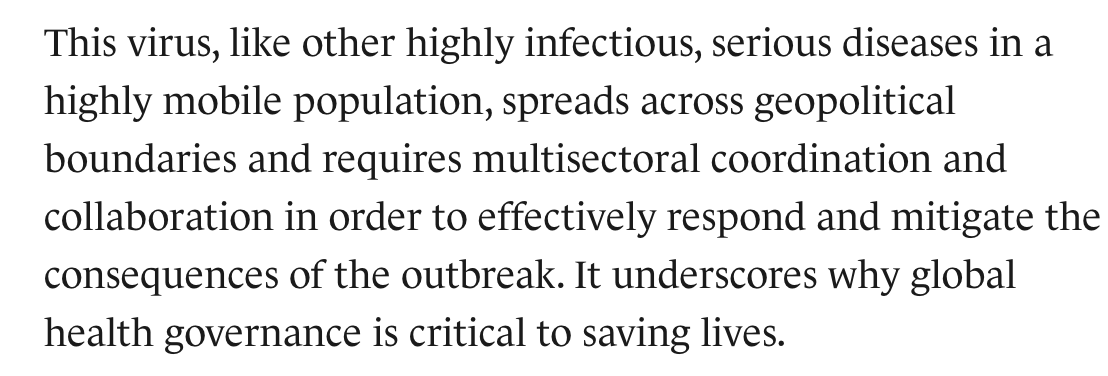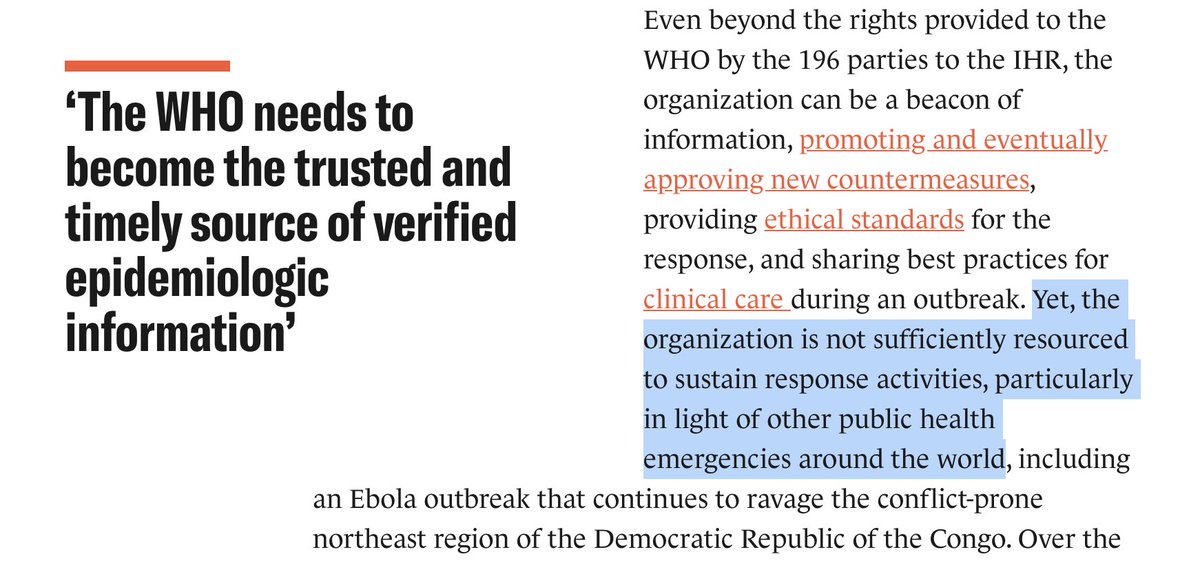
📰New Study🔬 out in @TheLancet!
By building a moment by moment chronology, we analyze how an outbreak became a pandemic & priorities for international reform.
So excited to share this huge team effort led by the amazing @sudhvir!
Link: thelancet.com/journals/lance…
Explainer🧵1/8
By building a moment by moment chronology, we analyze how an outbreak became a pandemic & priorities for international reform.
So excited to share this huge team effort led by the amazing @sudhvir!
Link: thelancet.com/journals/lance…
Explainer🧵1/8

2/8
In this paper, we:
1⃣ build a 50pg moment by moment chronology from outbreak to pandemic
2⃣ identify & analyze 5 key phases of events
3⃣map actions against IHR obligations under international law
4⃣propose 5 key areas for #GlobalHealthLaw reform, inc. IHR & #PandemicTreaty
In this paper, we:
1⃣ build a 50pg moment by moment chronology from outbreak to pandemic
2⃣ identify & analyze 5 key phases of events
3⃣map actions against IHR obligations under international law
4⃣propose 5 key areas for #GlobalHealthLaw reform, inc. IHR & #PandemicTreaty
3/8
1⃣ the chronology was built using:
💠systematic review of peer-reviewed articles & public reports w author follow up for preprints & additional lit
💠systematic review of internal WHO correspondence & documents
💠validation from experts inc. at WHO
It's incredibly detailed:
1⃣ the chronology was built using:
💠systematic review of peer-reviewed articles & public reports w author follow up for preprints & additional lit
💠systematic review of internal WHO correspondence & documents
💠validation from experts inc. at WHO
It's incredibly detailed:
4/8
2⃣ we identified the below five key phases of events, and detail and evidence each stage where available, from likely spillover to clinical detection, domestic assessment, reporting to WHO, WHO assessment, and international response.
2⃣ we identified the below five key phases of events, and detail and evidence each stage where available, from likely spillover to clinical detection, domestic assessment, reporting to WHO, WHO assessment, and international response.

5/8
3⃣we mapped actions of States, WHO & other actors against their international legal obligations under the International Health Regulations.
Despite the "fog of an outbreak", the time from clinical detection to international reports was a matter of days: ie relatively fast
3⃣we mapped actions of States, WHO & other actors against their international legal obligations under the International Health Regulations.
Despite the "fog of an outbreak", the time from clinical detection to international reports was a matter of days: ie relatively fast
6/8
For the IHR wonks out there, the role of "other reports" (Art 9) and WHO's power to verify information (Art 10) was useful. Given how quickly everything progressed, if comparing to Art 6, we're talking days to hours, not days to weeks. This means a rethink of "rapid".
For the IHR wonks out there, the role of "other reports" (Art 9) and WHO's power to verify information (Art 10) was useful. Given how quickly everything progressed, if comparing to Art 6, we're talking days to hours, not days to weeks. This means a rethink of "rapid".
7/8
4⃣We propose five key areas for reform, which involve:
🌏 amend IHR to bring into the 2020s, eg immediate notify high impact respiratory pathogens (like novel influenzas now)
🌍adopt #PandemicTreaty for many critical matters that go beyond IHR legal scope, w equity at centre
4⃣We propose five key areas for reform, which involve:
🌏 amend IHR to bring into the 2020s, eg immediate notify high impact respiratory pathogens (like novel influenzas now)
🌍adopt #PandemicTreaty for many critical matters that go beyond IHR legal scope, w equity at centre

8/8
There are a lot of assumptions about the early days of the pandemic, inc. what actually needs to be reformed to stop an outbreak from becoming a pandemic.
I encourage you to read the whole paper @TheLancet & explore our interactive chronology at: …commendations.theindependentpanel.org/public-chronol…
There are a lot of assumptions about the early days of the pandemic, inc. what actually needs to be reformed to stop an outbreak from becoming a pandemic.
I encourage you to read the whole paper @TheLancet & explore our interactive chronology at: …commendations.theindependentpanel.org/public-chronol…
• • •
Missing some Tweet in this thread? You can try to
force a refresh









